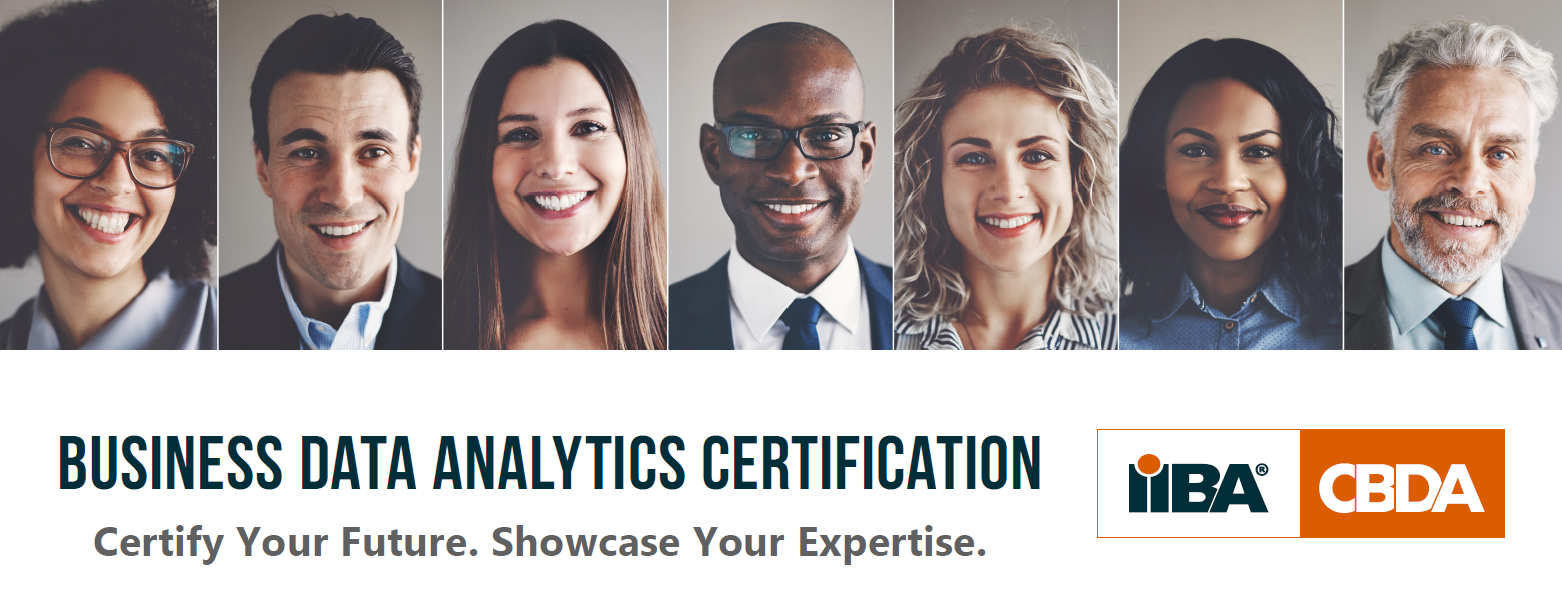Influencing Decision Makers with Business Data Analytics
How can BA practitioners influence senior leadership about the role business analysis plays in supporting and leading change within the organization? How can you get a seat at the table?
Business analysts are not alone when it comes to answering the age-old question of how to influence and inform your organization’s leadership team.
If you want decision makers to listen to your recommendations, you need to understand what is important to them. Business analysis is often part of another role or label, so getting the C-suite to listen can sometimes be challenging.

Before you think about what you want to say, think about what they want to hear and then tell them what they should hear. Speak in terms of pursuing business efficiencies and new ways of serving customers. Break down your explanation and recommendations into bottom line language.
A recent article about data science featured in the Harvard Business Review discusses the challenge data scientists deal with when trying to explain the data to the organization’s key decision makers. The International Institute of Business Analysis™ (IIBA®) recently launched a business data analytics practice to help business analysts working with data scientists explain this ‘stuff’ to senior leaders.
How can BAs communicate the results in a way that decision makers can understand it and use it to improve outcomes? In the 2019 HBR.org article, author Scott Berinato references the interview results from data scientist Hugo Bowne-Anderson’s findings stating that “The vast majority of my [podcast] guests tell [me] that the key skills for data scientists are...the abilities to learn on the fly and to communicate well in order to answer business questions, explaining complex results to nontechnical stakeholders.” In IIBA’s 2018 global salary survey, business analysis professionals reported the top required competencies and skills employers’ want, included communication skills, problem solving, creative and critical thinking, and storytelling.
Instead of sharing the results of your data analysis in a report, explain how the changes can drive revenue and customer engagement through scenarios, including risk assessments and historical data (from your data scientist colleague) to validate your recommendations.
The HBR.org article stated that many companies aren’t getting the value they could because efforts fall short when it comes to explaining the stuff [data] to decision makers. Data Scientists collect, analyze and interpret data to provide information that can drive decisions, but they often hit a wall when they try to explain the data. This is where a BA with experience in business data analytics and a sound grasp of the business can step in to translate this data in a way that the business understands and can act on to drive better business outcomes. Working together, the BA and the data scientist can effectively support organizations and help them capitalize on these insights.
The search for talented and experienced professionals who can do this work are in high demand. A recent LinkedIn article ranked business analysis amongst the most in-demand hard skills of 2019, along with analytical reasoning. To help you stand out to employers, IIBA has introduced the Certification in Business Data Analytics (IIBA® - CBDA) targeting BA professionals with mid-level experience who possess the skills to effectively perform business data analytics initiatives and can demonstrate experience in:
• Translating business problems into questions that analytics can answer
• Using analytics results to identify viable options
• Explaining technical results to non-technical stakeholders
• Visualizing data and translate results via data storytelling
• Building and demonstrating empathy for the customer
IIBA’s CBDA aligns with today’s top trending skillsets the market demands. The ability to effectively execute analysis related work to support business analytics initiatives helps data scientists explain their findings and turn them into actionable insights to answer the questions executives are asking.
Maximize Your Skills
If you’re ready to use data to help organizations achieve meaningful business outcomes, getting your CBDA can help pave the way. Take IIBA’s self-assessment to test your knowledge. If you’re looking for more information download the Understanding Business Data Analytics paper.
